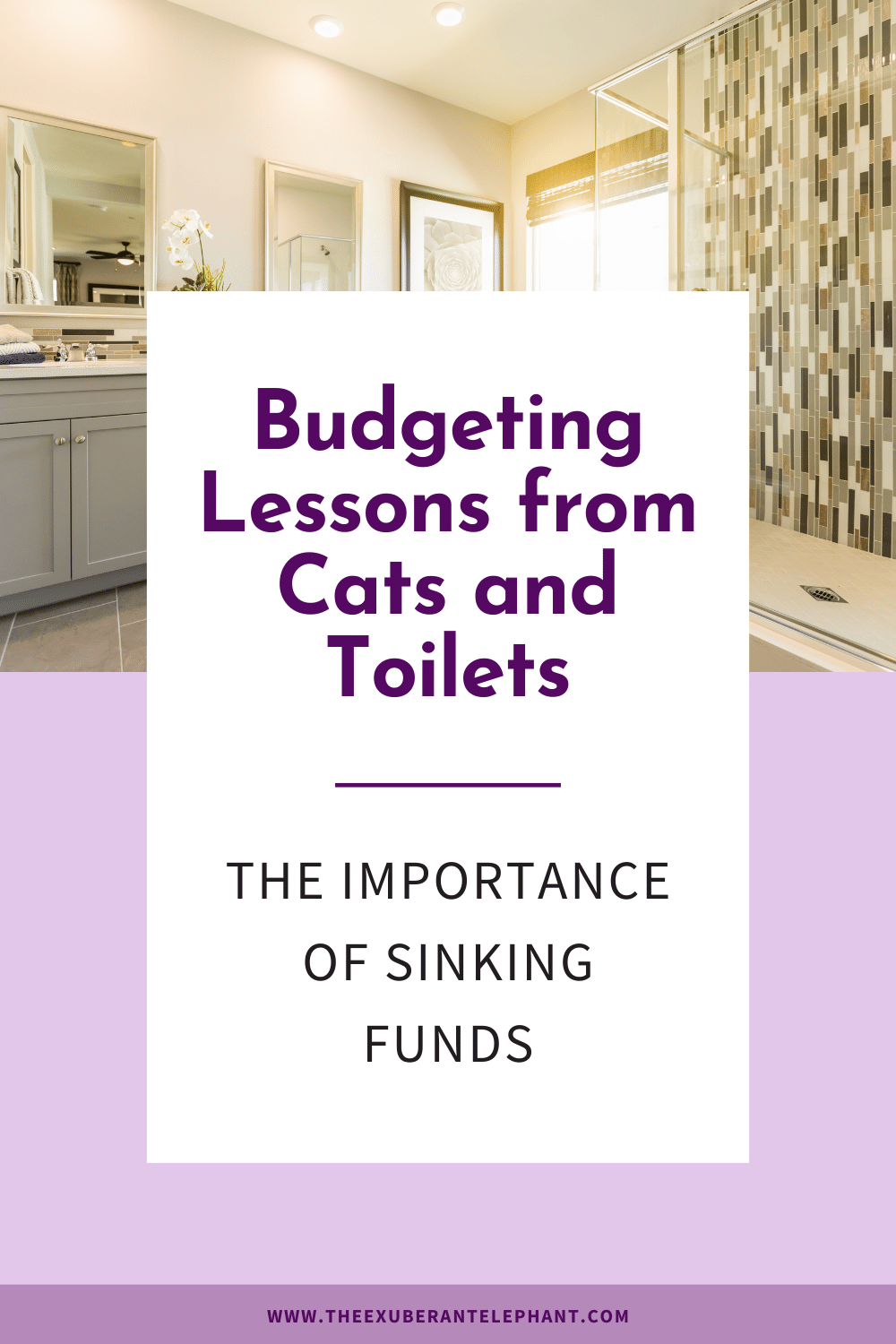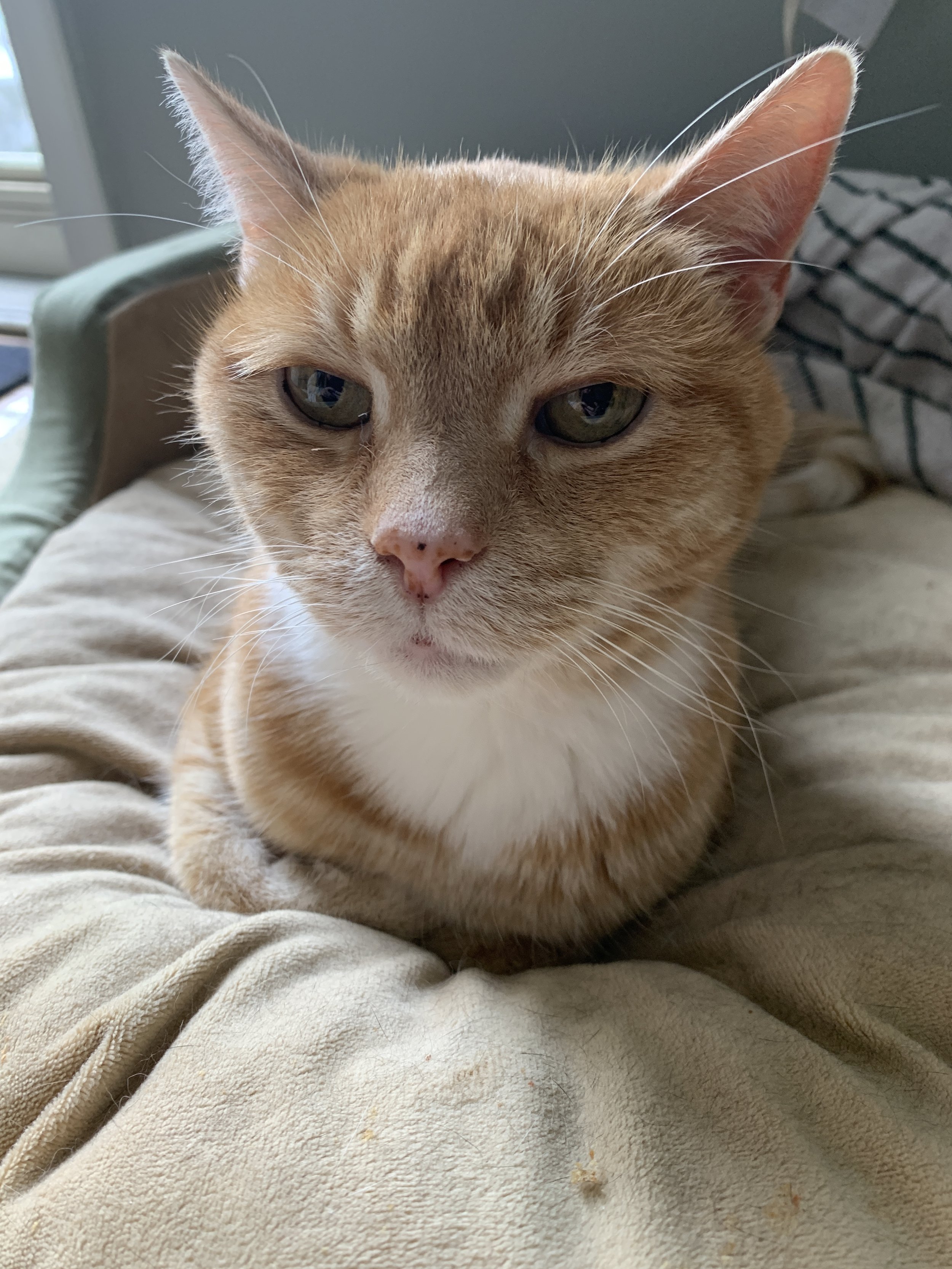Budgeting Lessons from Cats and Toilets: The Importance of Sinking Funds
Please note: some of my posts may contain affiliate links. This means if you choose to make a purchase, I may receive a commission.
However, I only recommend resources I know and love! See my full disclosure policy here.
Toilets, Cats, and Money: The Unexpected Connection to Building a Strong Budget
From Toilets to Sinking Funds
Have you ever had a moment where a seemingly mundane event turned into a profound lesson? Well, that's exactly what happened to us last month, and it involved a toilet. Well, two separate toilets in fact, and also a cat. Luckily not all in the same incident, but rather three separate events!
Now, I’m sure you are wondering what two toilets and a cat have to do with budgeting! (Haha, no, this is not the start of a bad joke either!) Just hang with me while I show you how these things are all related!
It started in early October with the handle of one of our toilets breaking. Luckily this was a simple $10 fix that didn’t cause any other major issues. As homeowners, my husband and I have come to terms with the fact that things in our house will inevitably need fixing at some point. (No landlord to call in this situation!) However, it could have easily been a different problem that ended up costing us hundreds of dollars. So it got me thinking about the importance of sinking funds in your budget.
Luckily, we are now to a point where we have some sinking funds, but I know this is not generally the case when you are just starting to take control of your finances. (I know it was for us several years ago!) Saving for future maybe this will happen eventually expenses, is generally not top of mind. It’s more like how do I keep my head above water?
What Is A Sinking Fund?
If you are unfamiliar with this term, a sinking fund is a designated savings account (or category if you are using YNAB!) specifically earmarked for future expenses or goals. You can think of it like having separate little pools of money that you contribute to regularly, so when the time comes, you have the cash available for those ‘unexpected’ expenses.
Sometimes these are things you know will be coming up, like holidays or vacations and you know roughly how much you can expect to spend.
But a lot of the time it is for things that will come up eventually, such as home repairs. Plus the real kicker is that you have no idea if it will cost $10 or $2,000.
Why Sinking Funds Need A Place In Your Budget
Sinking funds are a powerful tool that empowers you to take control of your finances and avoid unnecessary stress. Here's why they deserve a prominent place in your budget:
Anticipate and plan for irregular or ‘unexpected’ expenses
Life is full of surprises, whether it's a medical emergency, car repairs, or home maintenance. By allocating funds to specific sinking fund categories, you're better prepared to handle these irregular expenses without derailing your budget.
Reduce reliance on credit cards
When you have a sinking fund for anticipated expenses, you won't have to rely on credit cards or loans to cover them. This means less debt and more financial freedom. Or, use the card to earn points or cashback but then you have the money to pay the bill off right away!
Achieve long-term financial goals
Sinking funds aren't just for emergencies; they can also be used to save for future goals such as vacations, home renovations, or starting a business. By consistently contributing to these funds, you'll make progress toward your dreams.
The Toilet Saga Continues, Plus The Cat
While I meant to write about this after the first toilet incident, I didn’t get around to it. A week or so later, a piece in our OTHER toilet broke! I mean, what are the odds that BOTH of our toilets would have issues in the same month?? Luckily again, this one was another relatively inexpensive fix. Annoying, yes. Did it break our budget? No.
Then, last Thursday, this guy gave us a bit of a scare. This is TJ, the oldest of our four cats who is currently 15 years old. My husband hears him crying in the living room and finds him in an awkward position on the floor, looking like he is having a hard time moving.
Long story short, we ended up taking him to the emergency vet on Thursday night. Luckily, he was able to be seen, had some tests and x-rays done, got some fluids and he is ok now. But, that was also a $682.50 bill we were not planning for.
Talk about a bit of a blow to our budget. While we had over $500 in our cat sinking fund, we didn’t have the full amount. But because that $500 was there, it made things a lot easier. We only had to move a bit of money around in order to cover the full bill. There have definitely been times in the past when we just had to hand over a credit card and cross out fingers! Definitely NOT the way I prefer to budget!
Final Thoughts
In the end, our experience with TJ reminded us of a valuable lesson about the importance of sinking funds. By having a sinking fund specifically designated for pet emergencies, we were able to ease the burden of that surprise expense. The same principle applies to all areas of life that will eventually require maintenance - such as your own health and car repairs or replacements.
So, take a moment to assess your budget. Are you incorporating sinking funds to anticipate and prepare for irregular expenses? Remember, building sinking funds into your budget is an act of self-care and financial empowerment. Even if you are only able to start with $5. Something is better than nothing when those expenses inevitably pop up. By embracing this practice, you'll be better equipped to navigate life's unexpected twists and turns, without compromising your financial stability.
So go start today and let sinking funds be the anchor that keeps your budget afloat. Your future self will thank you.
READ MORE
Posts may contain affiliate links. See my full Disclosure.
Post Tags:

















